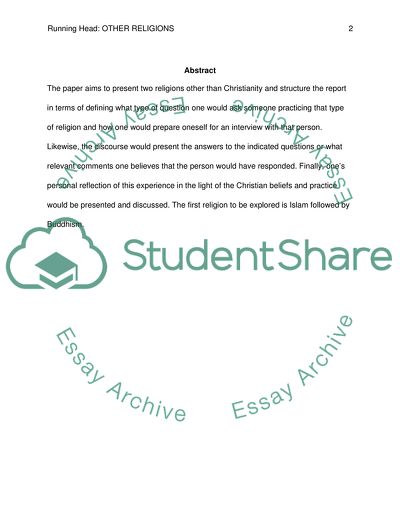Cite this document
(Islam and Buddhism Report Example | Topics and Well Written Essays - 1500 words, n.d.)
Islam and Buddhism Report Example | Topics and Well Written Essays - 1500 words. https://studentshare.org/religion-and-theology/1764748-other-religions
Islam and Buddhism Report Example | Topics and Well Written Essays - 1500 words. https://studentshare.org/religion-and-theology/1764748-other-religions
(Islam and Buddhism Report Example | Topics and Well Written Essays - 1500 Words)
Islam and Buddhism Report Example | Topics and Well Written Essays - 1500 Words. https://studentshare.org/religion-and-theology/1764748-other-religions.
Islam and Buddhism Report Example | Topics and Well Written Essays - 1500 Words. https://studentshare.org/religion-and-theology/1764748-other-religions.
“Islam and Buddhism Report Example | Topics and Well Written Essays - 1500 Words”. https://studentshare.org/religion-and-theology/1764748-other-religions.


